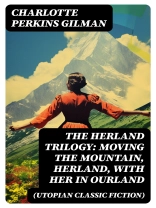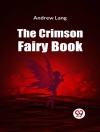Charlotte Perkins Gilman’s ‘The Herland Trilogy’ presents a compelling exploration of feminist utopia through its three interconnected narratives: ‘Moving the Mountain, ‘ ‘Herland, ‘ and ‘With Her in Ourland.’ Written in the early 20th century, this trilogy employs a blend of speculative fiction and social commentary, utilizing a straightforward yet incisive literary style to challenge patriarchal norms and envision a society led by women. The novels depict an isolated community of women who have flourished without men, unraveling themes of gender, civilization, and social equality that reflect the broader feminist discourse of Gilman’s time. Gilman, a prominent feminist thinker and social reformer, was deeply influenced by her own experiences in a male-dominated society, as well as her struggles with mental health, prompting her to seek alternative ways of living and thinking about gender roles. Her groundbreaking work in sociology and reform—combined with her personal insights—shaped her vision of a world where women could thrive independent of traditional constraints. This trilogy not only serves as an imaginative escape but also as an incisive critique of existing societal structures. Recommended for scholars and readers alike, ‘The Herland Trilogy’ invites exploration of its utopian ideals and challenges long-held assumptions about gender and society. Gilman’s visionary narrative remains remarkably relevant, offering valuable insights for contemporary discussions on feminism and social justice.
About the author
Charlotte Perkins Gilman (1860–1935) stands as a seminal figure in American literature and feminist thought. A writer, lecturer, and social reformer, Gilman’s body of work traverses fiction, non-fiction, and poetry, comprising an articulate vision of women’s rights and societal reform. Gilman is perhaps most renowned for ‘The Herland Trilogy, ‘ which includes ‘Moving the Mountain’ (1911), ‘Herland’ (1915), and ‘With Her in Ourland’ (1916). These works epitomize utopian feminist literature, delineating a vision of a world where gender equality prevails. ‘Herland, ‘ the centerpiece, envisions an isolated society composed entirely of women who reproduce through parthenogenesis, exploring themes of gender, culture, and education. Gilman’s writing is characterized by its daring reformist ideas and its clear, persuasive, and accessible style. Beyond these utopian works, Gilman’s short story ‘The Yellow Wallpaper’ (1892) remains a core text in the study of American literature and gender studies, illustrating her profound concern with the oppressive roles prescribed to women in the 19th-century patriarchal society. Gilman’s work presaged future feminist scholarship and continues to inspire readers with its progressive ideas and its challenge to social norms. She remains a cornerstone of American feminist literary tradition, her works serving as essential readings for an understanding of early feminist thought and the advancement of women’s rights.












